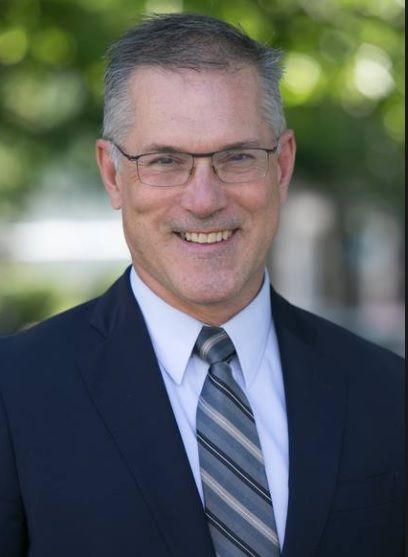
Dear Commons Community,
No man can serve two masters, the Bible teaches, but Mike Pence is giving it his all. This is the opening sentence in a biographical piece on Pence that was just published in The Atlantic. The article written by McKay Coppins is substantial and worth a read. Here are some excerpts.
“[in Anderson, Indiana]… Pence is sending a message to those with ears to hear—that he recognizes the absurdity of his situation; that he knows just what sort of man he’s working for; that while things may look bad now, there is a grand purpose at work here, a plan that will manifest itself in due time. Let not your hearts be troubled, he seems to be saying. I’ve got this.
And then, all at once, Pence is back on message. In his folksy Midwestern drawl, he recites Republican aphorisms about “job creators” and regulatory “red tape,” and heralds the many supposed triumphs of Trump’s young presidency. As he nears the end of his remarks, his happy-warrior buoyancy gives way to a more sober cadence. “We’ve come to a pivotal moment in the life of this country,” Pence soulfully intones. “It’s a good time to pray for America.” His voice rising in righteous fervor, the vice president promises an opening of the heavens. “If His people who are called by His name will humble themselves and pray,” he proclaims, “He’ll hear from heaven, and He’ll heal this land!”
It’s easy to see how Pence could put so much faith in the possibilities of divine intervention. The very fact that he is standing behind a lectern bearing the vice-presidential seal is, one could argue, a loaves-and-fishes-level miracle. Just a year earlier, he was an embattled small-state governor with underwater approval ratings, dismal reelection prospects, and a national reputation in tatters. In many ways, Pence was on the same doomed trajectory as the conservative-Christian movement he’d long championed—once a political force to be reckoned with, now a battered relic of the culture wars.
Because God works in mysterious ways (or, at the very least, has a postmodern sense of humor), it was Donald J. Trump—gracer of Playboy covers, delighter of shock jocks, collector of mistresses—who descended from the mountaintop in the summer of 2016, GOP presidential nomination in hand, offering salvation to both Pence and the religious right. The question of whether they should wed themselves to such a man was not without its theological considerations. But after eight years of Barack Obama and a string of disorienting political defeats, conservative Christians were in retreat and out of options. So they placed their faith in Trump—and then, incredibly, he won.”
…
“Pence underwent two conversions in college that would shape the rest of his life. The first came in the spring of 1978, when he road-tripped to Kentucky with some evangelical friends for a music festival billed as the Christian Woodstock. After a day of rocking out to Jesus-loving prog-rock bands and born-again Bob Dylan imitators, Pence found himself sitting in a light rain, yearning for a more personal relationship with Christ than was afforded by the ritualized Catholicism of his youth. “My heart really, finally broke with a deep realization that what had happened on the cross in some infinitesimal way had happened for me,” Pence recounted in March 2017. It was there, he said, that he gave his life to Jesus.
The other conversion was a partisan one. Pence had entered college a staunch supporter of Jimmy Carter, and he viewed the 1980 presidential election as a contest between a “good Christian” and a “vacuous movie star.” But President Ronald Reagan won Pence over—instilling in him an appreciation for both movement conservatism and the leadership potential of vacuous entertainers that would serve him well later in life.”
…
Trump gloating about his penchant for grabbing women “by the pussy,” and instantly upended the campaign. Republicans across the country withdrew their endorsements, and conservative editorial boards called on Trump to drop out of the race. Most alarming to the aides and operatives inside Trump Tower, Mike Pence suddenly seemed at risk of going rogue.
Trump’s phone calls to his running mate reportedly went unreturned, and anonymous quotes began appearing in news stories describing Pence as “beside himself” over the revelation. One campaign staffer told me that when she was asked on TV the day after the tape came out whether Pence would remain on the ticket, she ad-libbed that, yes, he was 100 percent committed to Trump. She remembers walking away from the set and thinking, “I have no idea if what I just said is true.”
It’s been reported that Pence sent Trump a letter saying he needed time to decide whether he could stay with the campaign. But in fact, according to several Republicans familiar with the situation, he wasn’t just thinking about dropping out—he was contemplating a coup. Within hours of The Post’s bombshell, Pence made it clear to the Republican National Committee that he was ready to take Trump’s place as the party’s nominee. Such a move just four weeks before Election Day would have been unprecedented—but the situation seemed dire enough to call for radical action.
Already, Reince Priebus’s office was being flooded with panicked calls from GOP officials and donors urging the RNC chairman to get rid of Trump by whatever means necessary. One Republican senator called on the party to engage emergency protocols to nominate a new candidate. RNC lawyers huddled to explore an obscure legal mechanism by which they might force Trump off the ticket. Meanwhile, a small group of billionaires was trying to put together money for a “buyout”—even going so far as to ask a Trump associate how much money the candidate would require to walk away from the race. According to someone with knowledge of the talks, they were given an answer of $800 million. (It’s unclear whether Trump was aware of this discussion or whether the offer was actually made.) Republican donors and party leaders began buzzing about making Pence the nominee and drafting Condoleezza Rice as his running mate.
Amid the chaos, Trump convened a meeting of his top advisers in his Manhattan penthouse. He went around the room and asked each person for his damage assessment. Priebus bluntly told Trump he could either drop out immediately or lose in a historic landslide. According to someone who was present, Priebus added that Pence and Rice were “ready to step in.” (An aide to the vice president denied that Pence sent Trump a letter and that he ever talked with the RNC about becoming the nominee. Priebus did not respond to requests for comment.)
The furtive plotting, several sources told me, was not just an act of political opportunism for Pence. He was genuinely shocked by the Access Hollywood tape. In the short time they’d known each other, Trump had made an effort to convince Pence that—beneath all the made-for-TV bluster and bravado—he was a good-hearted man with faith in God. On the night of the vice-presidential debate, for example, Trump had left a voicemail letting Pence know that he’d just said a prayer for him. The couple was appalled by the video, however. Karen in particular was “disgusted,” says a former campaign aide. “She finds him reprehensible—just totally vile.”
Yet Pence might also have thought he glimpsed something divine in that moment of political upheaval—a parting of the seas, God’s hand reaching down to make his will known. Marc Short told me that in moments of need, Pence turns to a favorite passage in Jeremiah: “For I know the plans I have for you, declares the Lord, plans to prosper you and not to harm you, plans to give you hope and a future.” Short said, “Mike believes strongly in the sovereignty of God, and knowing that the Lord has a plan for him.”
…
Back in Indiana, Pence’s Trump apologia on the campaign trail surprised those who knew him. In political circles, there had been a widespread, bipartisan recognition that Pence was a decent man with a genuine devotion to his faith. But after watching him in 2016, many told me, they believed Pence had sold out.
Scott Pelath, the Democratic minority leader in the Indiana House of Representatives, said that watching Pence vouch for Trump made him sad. “Ah, Mike,” he sighed. “Ambition got the best of him.” It’s an impression that even some of Pence’s oldest friends and allies privately share. As one former adviser marveled, “The number of compromises he made to get this job, when you think about it, is pretty staggering.”
There are a number of other insights that are most interesting that give the reader more of a feel for Mike Pense. My comment is that for those of us looking for Donald Trump to somehow go away, Mike Pense may be just as problematic especially on the policy side.
Tony









